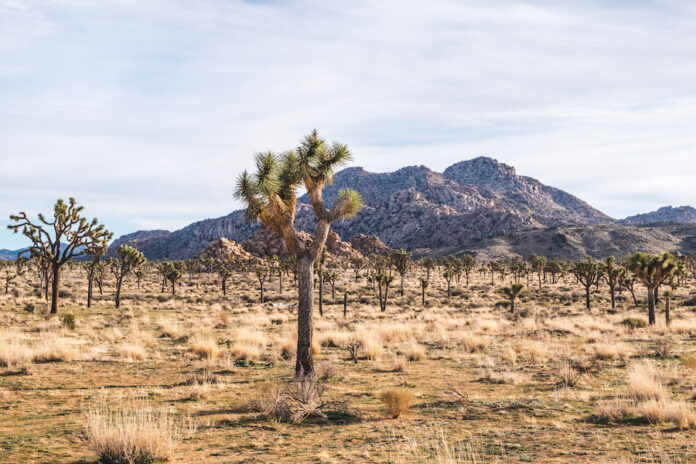Events in Joshua Tree National Park show how little we care about our environment
Imagine this headline: Off-roading vehicle enters restricted area during middle of night at full speed, crashes and kills innocent bystander.
Gut-wrenching, right? You’d probably think, “Arrest this lunatic!”
What if I were to tell you that this innocent bystander was not a person, but a Joshua tree? Do you feel less sympathetic now? You wouldn’t be alone — it’s human nature.
Perhaps one of the reasons we’ve made it so far as a species is our selfishness. But at what point does it go too far? Where is the line between appreciating nature and ruining it?
Perhaps technology is to blame for our distant relationship with nature. Social media blinds us from seeing the value of these magnificent beings. Some of these veteran trees have been standing on this earth since Columbus set foot in North America. Instead of admiring them, we treat these Joshua trees like they’re our playground and destroy them merely for the instant gratification of likes on social media. We have lost touch with what it means to not only appreciate, but respect nature.
Our entertainment includes TV shows about people surviving in the wilderness, pitting humans against nature. Modern appreciation of nature no longer resembles the reverence of the past, when people like Theodore Roosevelt stood in awe at “the wonderful grandeur, the sublimity, the loneliness and beauty” of the Grand Canyon, which he declared a national monument in 1908.
In the wake of the government shutdown, National Park rangers all over the country returned to their posts to find destruction everywhere: graffiti, vandalism, bathrooms covered in human feces, animal theft and destroyed habitats and trees.
The government shutdown came at an inopportune time for Joshua Tree National Park. The park was surging in popularity with 2.8 million visitors in 2017, and 22,000 visitors just on Thanksgiving. The influx of people is great for surrounding communities, pumping $123 million into local businesses like restaurants and hotels.
While these local economic benefits are important, keeping the park closed could have prevented these damages. The park’s management ultimately decided to side with monetary motives over the health of the park.
The damages done to Joshua Tree National Park in the 35-day government shutdown will take 200 to 300 years to recover, according to the park’s Superintendent Curt Sauer.
Joshua trees may look sturdy, but they actually have shallow root systems that depend on healthy soil and microorganisms to grow. So, you can see how an off-roading vehicle might affect this delicate ecosystem, especially when driving through 24 miles of restricted park area.
Additionally, Joshua trees are going through what might be their last years on Earth because of climate change. Rising temperatures are pushing organisms further up north toward cooler climates, leaving the Joshua tree behind in inhospitable conditions.
One of the species leaving is the yucca moth. This moth works all of its adult life pollinating the Joshua trees’ flowers without getting any benefit in return. The yucca moth — already a weak flier — struggles taking the Joshua tree seed to other habitats, leaving their young to nourish off the Joshua tree’s flower.
This beautiful coexistence is hanging on a thread because of our inability to value our environment. And you’d be a fool to think we’re any different.
Written by: Daniel Oropeza — daoropeza@ucdavis.edu
Disclaimer: The views and opinions expressed by individual columnists belong to the columnists alone and do not necessarily indicate the views and opinions held by The California Aggie.




